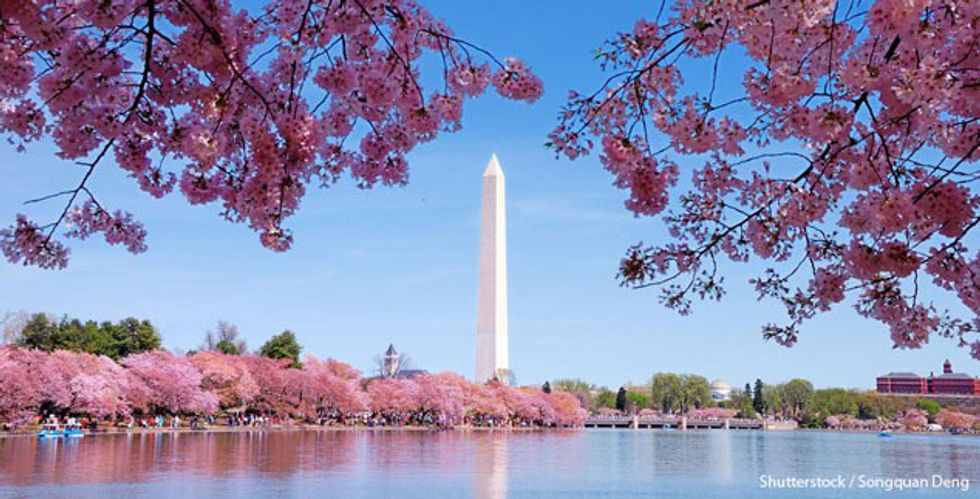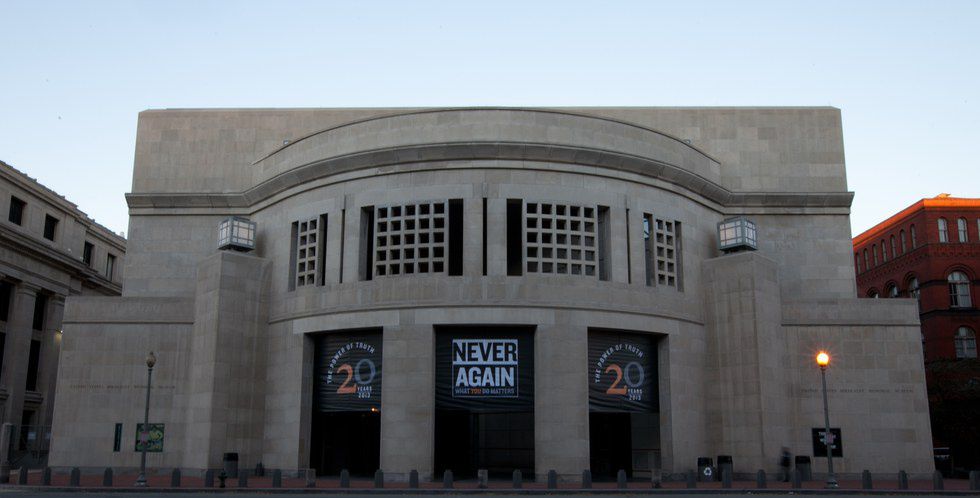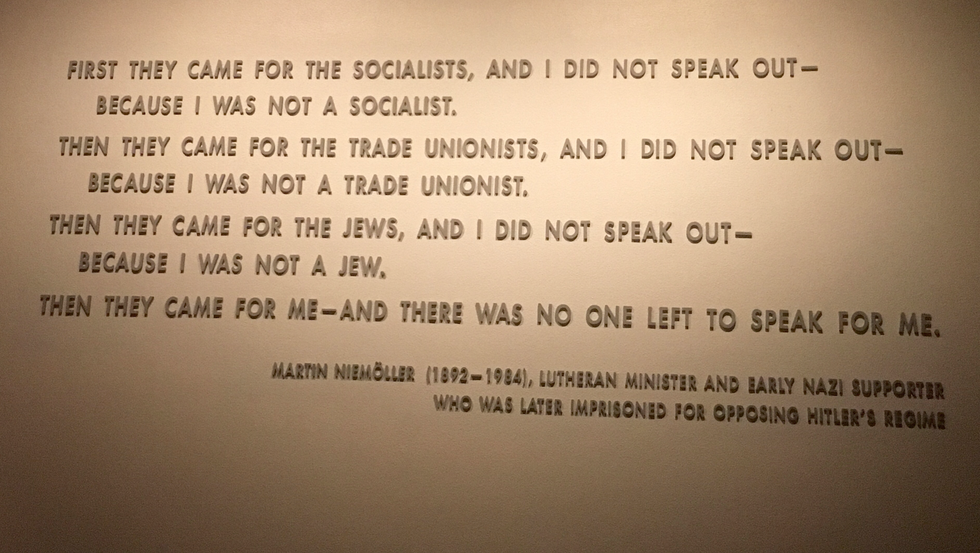Washington D.C. has always been one of my favorite cities to visit. When I was in eighth grade, I traveled with my middle school class to our nation’s capital and viewed the monuments and went to the myriad Smithsonian museums for the first time. I was deeply intrigued by the complex and thorough histories surrounding each monument and for whom the monument was honoring.
At the Lincoln Memorial, for example, I distinctly remember getting goose bumps when I stood in the exact spot Martin Luther King Jr. stood decades before and recited his infamous “I have a Dream” speech, and I got a thrill when we went to the National Archives and saw the documents that started it all. While I learned a lot and enjoyed my time on this trip, it wasn’t until I came back to D.C. years later, as a junior in high school, in which I started to further understand the beauty and power of this city.
The Washington Monument.
Junior year, I participated in a program called “Close-Up” with about twenty-five other students. This trip provided students with a close-up view of government and our nation’s history. Each day we toured different parts of the city, and I saw some new monuments that had been built since the last time I visited. Our schedule was jam-packed with tours, walking, and meetings with smaller groups, which were comprised of students from all over the country from different schools. Getting to know students from California, Arkansas, Florida and many states in between was what I enjoyed most about this trip. We were able to talk about politics and learned how to respect the opinions of those who held different beliefs than us. This was one of the first times I had heard people speak in favor of the Defense of Marriage Act (DOMA) and openly talk about why the second amendment was crucial.
It was in these meetings where I realized that I truly lived in a bubble, and I’m so grateful for this experience of being able to hear other’s views, get to know them, and learn that even though some of our political beliefs were different that we actually did have much in common. Close-up confirmed my growing interests in politics, policy, and history. Throughout the week of the trip, I became much more confident in my political views and even stood up in front of five hundred students in a debate and gave the opening argument for why DOMA should be repealed. We witnessed a productive discussion/debate between a liberal and conservative, and I remember being taught that being able to find common ground with those who contain different beliefs than us is important and sometimes is the only way to foster progress and positive change in our political environment.
This past weekend, I once again returned to Washington to visit my sister who has lived there for about a year and a half. My dream is to work there for a summer or maybe live there after graduating college, but it all depends on what I decide to do and what career I end up pursuing. Although it was probably my fifth or so time visiting the city (I went a couple times aside from in eighth grade and junior year) and going to the monuments, my interest and passion in the city and all our nation’s history didn’t waver. What I found really interesting was viewing these monuments, documents and museum exhibitions through my twenty-year-old perspective - a perspective that, undeniably, is older and wiser. I’ve learned so much more about the structure of our government after taking some courses in college and working at my Senator’s office this summer.
Over the past couple of years, when I have come home from school for breaks and over the summer, I discovered a love I had for reading. As a little girl, I would read everything I could get my hands on, and I vividly remember poring through chapter books during every spare minute I found in the day. I suppose this passion has always existed, but it hid behind my dislike for reading books assigned through school; I’m much more of a “read for pleasure” kind of person. One of my favorite topics to read and learn about is World War 2, and I have read countless books centered on the Holocaust and its horrific and profane nature. I’ve learned about Hitler’s rise to power and how something so atrocious could occur, albeit I will never comprehend this fully.
My sister and I were thinking of places to go that I haven’t necessarily gone before. I went to the United States Holocaust Memorial Museum in eighth grade, but I didn’t totally remember it or pay as close attention as I should’ve. We decided to spend our Sunday morning there and ended up staying for over three hours and still weren’t able to finish going through the main exhibition; unfortunately, I had a flight to catch that I didn’t want to miss. I was struck by the thorough exhibits and how focused every museum-goer was on reading about the artifacts the museum housed and the history of the war and the horrible “final solution.” As I stood inside the museum going through the exhibit, I was taken aback at how many young children there were reading the different notes and briefings on the walls.
Present were middle school (at least I think) students who were silent while reading and took off their hats to be respectful. Thinking of the recent presidential election and the fear that has been unfortunately instilled in many American citizens, this had an impact on me, and I thought to myself how important it is that we all are educated on this portion of history to ensure that it doesn’t happen again. All over the walls of the museum are the words “Never Forget,” and in that moment, I was reminded once again, in addition to the feelings that resonate with me after finishing books on this topic, that we simply must never forget what happened in Europe and how America stood so idly on the side.
The front of the United States Holocaust Memorial Museum in Washington D.C.
No matter how old I get, I will never understand how something this marginalizing and terrifying could’ve happened. It is vitally important that we educate ourselves on this atrocity and the aberrant hate that existed in the perpetrators’ minds and hearts that led them to commit these crimes against humanity. All schools around the country should be required to teach about the Holocaust, starting when deemed appropriate (probably middle school), and there should be more courses offered at universities about this topic. We must never forget what happened in Europe during the first half of the twentieth century. I am so grateful for this amazing museum offered in Washington D.C., and I highly recommend it to any visitors to the city or inhabitants of the city looking for something to do and an opportunity to learn. Never forget.
This is a quote found at the end of the Holocaust museum's main four-story exhibit. It is so powerful, and we must remember its message.






















